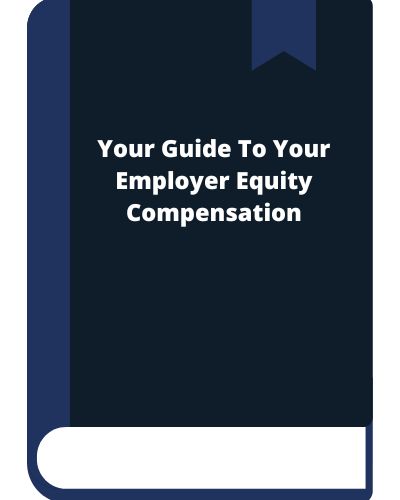
Key Points
- Equity compensation is a form of compensation that an employer offers to an employee in the form of company stock or other forms of equity.
- Equity compensation can take several different forms, including stock options, restricted stock units (RSUs), and employee stock purchase plans (ESPPs).
- Equity compensation can offer significant tax advantages, but it can also be complex and difficult to understand.
- Understanding the tax implications of equity compensation is crucial, as the tax rules for equity compensation are different from those for traditional forms of compensation.
- To maximize the benefits of equity compensation, it’s important to work with a financial advisor who understands the complexities of equity compensation and can help you navigate the tax rules and make informed decisions about your equity compensation.
Introduction
When it comes to equity compensation, there are a lot of important key facts you need to know in order to make sure you are getting the most out of your benefits.
Here are 5 important things you should keep in mind:
- Your equity compensation is subject to vesting.
- You may have to pay taxes on your equity compensation.
- Your company may have different rules for how your equity compensation is treated upon termination.
- You should have a plan in place for what to do with your equity compensation when you leave your company.
- You need to monitor your equity compensation so that you don’t lose track of it.
What is equity compensation?
If you’re like most people, the term “equity compensation” sounds like something that only applies to bigwig executives at major corporations. In reality, though, equity compensation is a type of financial compensation that can be offered to employees at all levels of a company, from entry-level workers to high-powered executives.
So what exactly is equity compensation? Equity compensation is any type of compensation that gives the recipient an ownership stake in the company, either through stock options or restricted stock units (RSUs). This type of compensation can be an extremely powerful tool for attracting and retaining top talent since it gives employees a real incentive to help grow the company.
Of course, there are some risks associated with equity compensation as well. If the company’s stock price falls, for example, then the value of the employee’s equity will decline as well. Still, for many employees, the potential upside of equity compensation far outweighs the risks.
If you’re considering offering equity compensation to your employees, it’s important to consult with an experienced attorney to make sure you comply with all applicable laws and regulations. But if done correctly, equity compensation can be a great way to attract and retain top talent at your company.
What are the different types of equity compensation?
There are four main types of equity compensation:
1. Restricted Stock Units (RSUs): RSUs are the most common type of equity compensation and are typically granted to employees at public companies. RSUs give employees the right to purchase stock in the future at a set price, usually the fair market value of the stock at the time the RSUs are granted.
2. Stock Options: Stock options are another popular type of equity compensation, typically granted to employees at startups or early-stage companies. Unlike RSUs, stock options give employees the right to purchase stock at a set price (the “strike price”) regardless of the future market value of the stock. Keep in mind, a cashless exercise might be an option worth considering (so you don’t have to spend anything to get the benefit of your stock options. Learn more about that, here.
3. Phantom Stock: Phantom stock is similar to stock options in that it gives employees the right to purchase stock at a set price in the future. However, phantom stock does not actually confer ownership of any real shares – rather, it is a promise from the company to pay out an equivalent amount in cash or shares at some point in the future.
4. Employee Stock Purchase Plans (ESPPs): ESPPs are plans that allow employees to purchase company stock at a discount, typically through payroll deductions. ESPPs are often offered by publicly-traded companies as a way to encourage employee ownership and loyalty.
What are the benefits of equity compensation?
Employee equity compensation is a great way to attract, retain, and motivate employees. It can also be used to align employee and shareholder interests. Equity compensation can come in the form of stock options, restricted stock units (RSUs), or performance shares.
Stock options give employees the right to purchase shares of the company’s stock at a set price (the strike price) over a set period of time. This is an attractive benefit because employees only have to pay the strike price (which is often lower than the current market price) to purchase the shares. If the company’s stock price increases, employees can make a profit by exercising their options and selling the shares. Keep in mind, the taxes get complicated with these. Learn more about the taxes you’d owe by exercising your ISOs and NQSOs, here.
RSUs are similar to stock options, but with RSUs, employees are given actual shares of the company’s stock (or cash equivalent) after vesting. With RSUs, there is no need to exercise because employees automatically receive the shares upon vesting. Vesting typically occurs over a period of time or after achieving certain milestones. There are some tax snafus you need to be wary of when it comes to your RSUs that, if you don’t prepare, could make things tough. Learn more, here.
Performance shares are another type of equity compensation that rewards employees for meeting specific performance goals set by the company. Performance shares can be in the form of cash bonuses or additional equity grants. For example, a company may grant performance-based RSUs that vest only if certain financial targets are met over a period of time.
What are the risks of equity compensation?
There are a few key risks to equity compensation that employees should be aware of before accepting this type of compensation.
First, there is the risk that the company may not perform well and the value of the equity may drop.
Second, if the company is sold or goes public, the employee may not have any control over when they can sell their equity and could be subject to a lock-up period.
Finally, there is always the risk that the company could go bankrupt and the employee would receive nothing for their equity.
How does equity compensation work?
If you’re like most people, the term “equity compensation” sounds like something that only applies to bigwig executives at major corporations. In reality, though, equity compensation is a common form of payment for employees at startups and small businesses. If you work for a company that offers equity compensation, it’s important to understand how it works and what the implications are for your financial future.
Equity compensation is basically a type of stock option that allows employees to purchase shares in their company at a set price (usually below the current market value). The number of shares and the price are determined by the employer, and they can be subject to vesting requirements (meaning you have to stay with the company for a certain period of time before you can exercise your options).
There are two main types of equity compensation: restricted stock units (RSUs) and incentive stock options (ISOs). RSUs are the more common type, and they work like this: The employer sets aside a certain number of shares for employees, who then have the right to purchase those shares at a set price once they vest. ISOs are less common but work similarly, except that they may be subject to different tax implications.
Employees typically don’t pay anything for their equity compensation up front; instead, they pay when they exercise their options (i.e., when they buy the shares). At that point, they may have to pay income taxes
How can you maximize your equity compensation?
If you’re like most people, you probably have a lot of questions about how your equity compensation works. Here are some key things you need to know in order to maximize your equity compensation:
– First, make sure you understand the terms of your equity compensation plan. What kind of vesting schedule does it have?
What are the conditions under which you can exercise your options? Knowing the answers to these questions will help you make informed decisions about when and how to best take advantage of your equity compensation.
– Second, stay up to date on the value of your company’s stock. This will help you know when the best time is to exercise your options and sell your shares.
– Finally, keep an eye on tax laws and regulations surrounding equity compensation. These laws change frequently, so it’s important to stay up to date on the latest changes in order to minimize your tax liability.
Stock options get far more complicated in the strategy you should use. Read our article on the strategies available and how to think about them, here.
Still have questions about your equity compensation? Download Our Free Ebook, Here.

Equity Compensation can get complicated and hard to understand. We created a brief, albeit comprehensive guide to your equity compensation.

